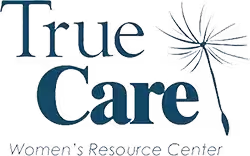Teen Pregnancy Prevention
As we near the end of May we think of summer vacation, graduations, award ceremonies, and moving on to new adventures. Teen pregnancy isn’t usually at the top of our list of things to ponder, and yet May is actually National Teen Pregnancy Prevention Month.
Most people can agree that teen pregnancy, especially for girls under age 17, is important to prevent. Our teens (boys and girls) are still in school and not ready to be independent from their families let alone support a child for the next 18 years. That doesn’t mean that raising a child can’t be done well with some good community and parental support, but it is not ideal for most young people.
Disagreement about Method
Besides believing that teen pregnancy should be prevented, agreement about how to prevent it becomes very difficult. This is a topic impacted by many religious beliefs and cultural values. Emotions run high when discussing important related topics such as abstinence, sexual lifestyles, birth control, and abortion. Everyone comes to the table with a different world view and it is hard to find reliable unbiased information on the topic. For people and organizations that focus on women’s reproductive rights, it is important not to say anything that might make sex look unsafe, prevent access to birth control, or take away the “right” for young people to have sex. For religious organizations, it is important to instill the value of waiting or abstaining to have sex until marriage because the holy writings of their faith (Bible, Torah, Koran, or other) says sex is only for a marriage relationship. Somewhere in between are lots of different ideas and beliefs. All of these life philosophies are guiding how we look at research data and how we mentally discard or gloss over information that doesn’t validate our goals and bias. It is hard to find good information about the true risks and benefits of different methods of pregnancy prevention.
Prevention Options
We do know that abstinence is 100% effective at preventing pregnancy and sexually transmitted diseases (stds). No other options can prevent pregnancy and stds with that level of effectiveness and without having side effects. Medically, it makes sense to push this option as the safest and best option for our teens.
For young people who are sexually active and refuse abstinence, there are some risk reduction techniques that involve the use of various types of birth control and condoms. None of these techniques are 100% effective and therefore place young people at risk for pregnancy and stds. Condoms can break, fall off, and aren’t effective against some stds (skin to skin transmission like herpes and HPV). Hormonal birth control is a chemical substance with risks such as blood clots, strokes, and even an increased risk of breast cancer. For those considering the use of contraceptives, care must be taken to provide adequate education about all of the health risks and failure rates. Withholding or glossing over the risks of sex and of birth control methods prevents young people from making an informed decision.
Our Western culture says it is not reasonable to expect youth and young adults to choose to wait for sex until they are ready to be pregnant; therefore, we must encourage the use of condoms and birth control. However, many young people are choosing to wait. According to the Centers for Disease Control (CDC), only 1 in 4 teens between the ages of 15-17 have ever had sex. Does that surprise you? 75% of our teens have not had sex before age 17? We need to focus on helping that 75% of our teen population to be proud of their good choices and to continue to make the healthy choice of abstinence. We need to let them know they are not in the minority and sexually repressed. They are intelligent and brave for making such a positive life choice. Virgin is not a dirty or horrid word.
This May as you ponder pregnancy prevention, consider that abstaining from sex is a healthy and viable option for teens, and for any person who is not ready to become a parent. If you are married or choose not to remain abstinent, be sure to really research the method you select and understand the side effects, risks, and failure rates.
True Care offers a great class called Feminine Genius which comes alongside of a woman (teens and older women welcome) to help her understand her reproductive cycle, her risks for stds, abstinence and how to make healthy reproductive choices for her future. For more information on the Feminine Genius Program contact Rebecca, RN, BSN @ 307-472-2810 Ext. 12.
